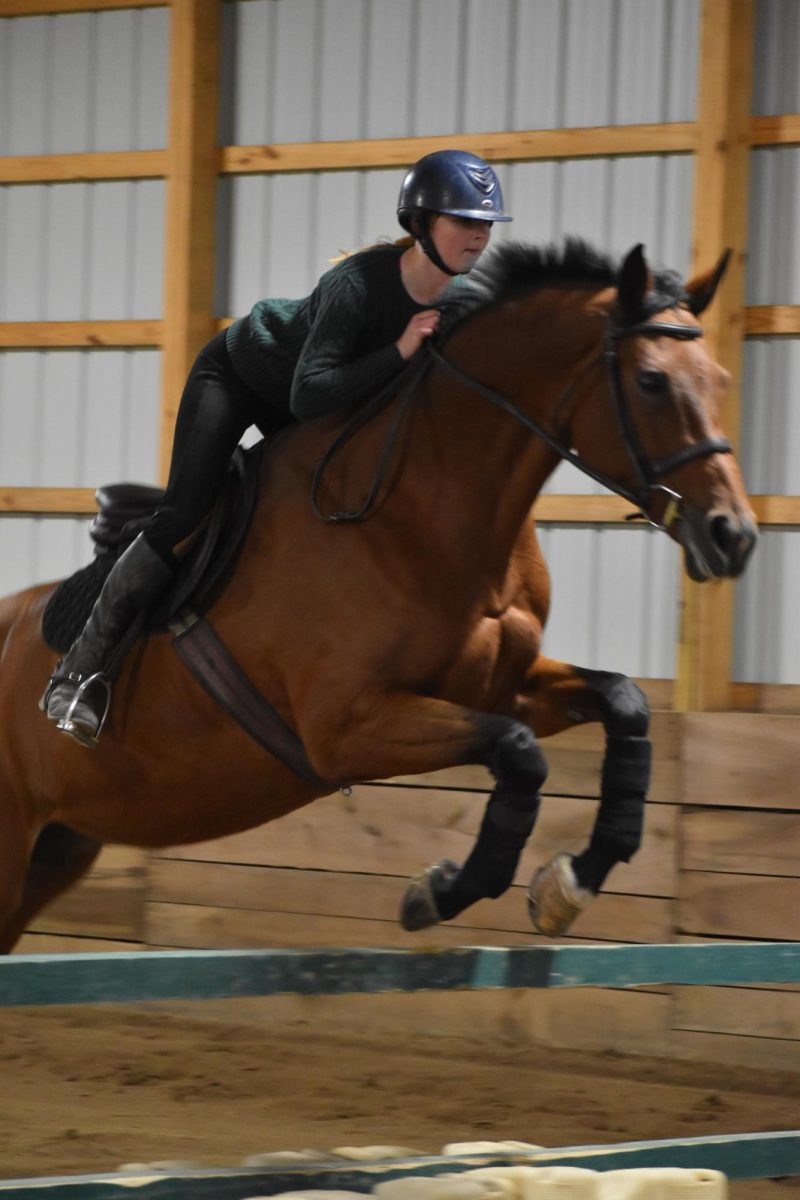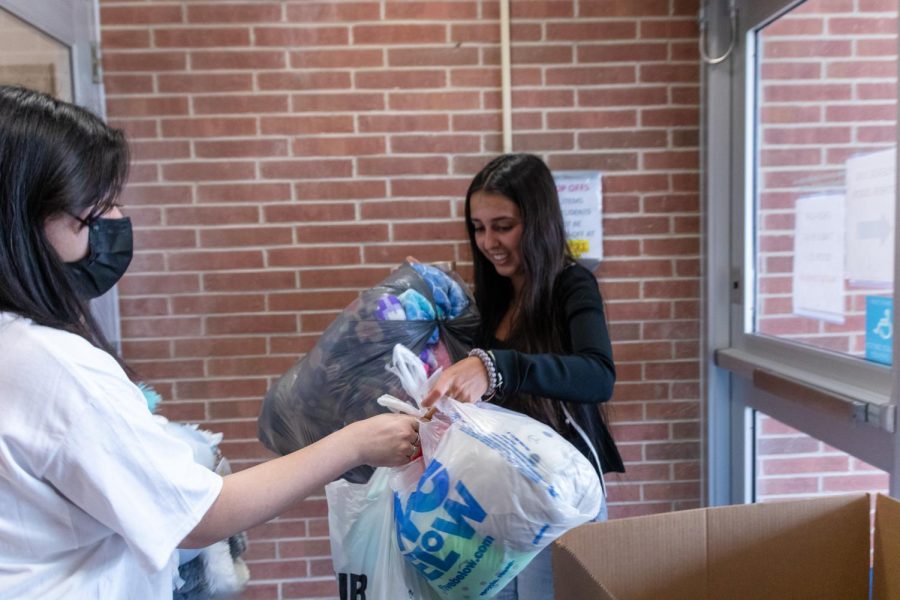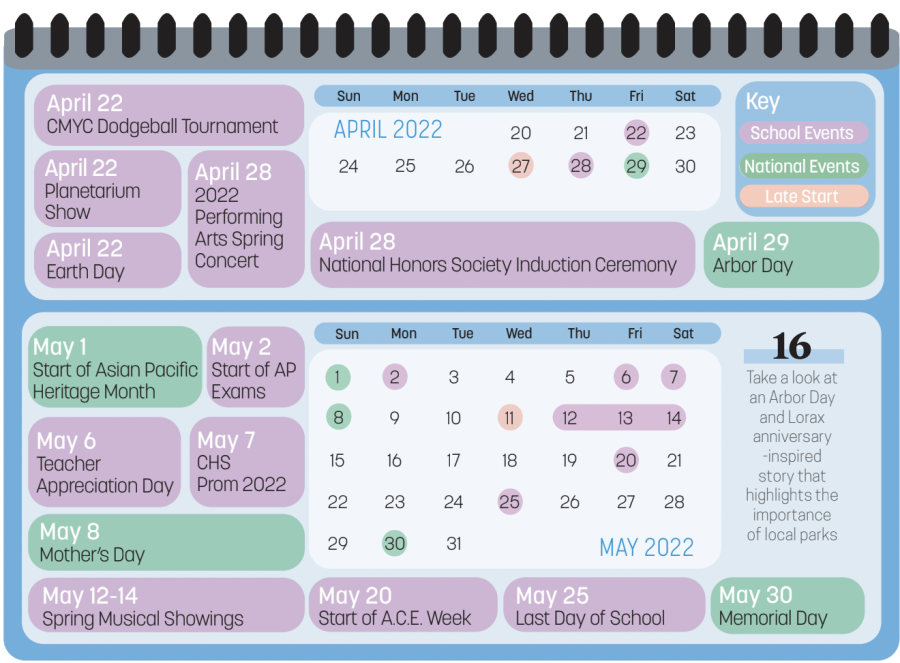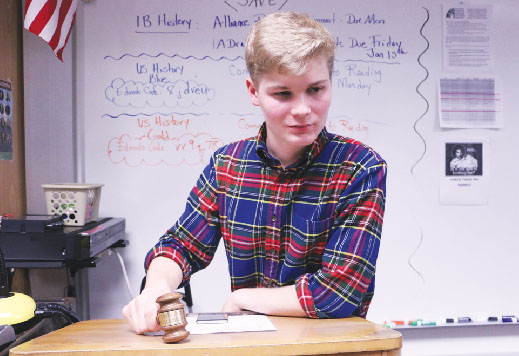The 2016 u.s. presidential election, scheduled for Nov. 8, will be the country’s 58th quadrennial election.
Although many people consider this event one of the most important phenomena in the United States, studies suggest people should expect fewer young adults, defined as citizens ranging from 18 to 29 years old, to choose to participate.
 The percentage of young voters to the total population is still marginally lower than that of older voters. Since new presidents affect the lives of younger citizens more than those of senior citizens, young people’s votes not only matter to the nation’s future, but also to their own.
The percentage of young voters to the total population is still marginally lower than that of older voters. Since new presidents affect the lives of younger citizens more than those of senior citizens, young people’s votes not only matter to the nation’s future, but also to their own.
Quinn Gordon, co-president of Model UN and senior, said he has decided to go against that trend.
He said, “I’ve always been kind of politically active – I like to know what’s happening within politics, like within our nation, and I think that has started at such a young age within my family, because my family’s always been politically active – that I’ve just been kind of grown into the culture that I should vote; it’s my civic duty to vote.”
While Gordon said he plans to vote, some experts such as Ariel Edwards-Levy, a writer for the Huffington Post, said, “People who don’t vote are definitely at a disadvantage. Many are choosing not to vote because they’re not engaged in the political process, or don’t believe that their vote will matter.”
She said, “That’s an issue because the people who don’t vote may hold significantly different views from those who do, especially on topics like the need for a social safety net, but the voices of those who do cast a ballot are being heard more loudly.”
While some young adults do believe voting is an obligation of citizenship, it is not the prevailing view among all young voters.
According to an analysis conducted by Thom File, a sociologist in the U.S. Census Bureau’s Education and Social Stratification Branch, in April of 2014, the number of young voters did increase, albeit slowly, and peaked in 2008 at 51 percent.
However, that percentage dropped to 45 percent in 2012.
Senior Sam Knapp said he feels he is thoroughly prepared to vote in the current election. Additionally, he said he is taking classes such as Boy’s State to familiarize himself with the voting process.
“I’ve decided to vote this year because I think that it is my constitutional duty, my constitutional obligation to do so, and having the ability to vote means that I have an obligation to participate in the political system,” Knapp said. “I think that it’s not only what I should do; I think that it’s a good thing to do.”
ccording to Edwards-Levy via email, “Research strongly supports the idea that voting is habit-forming: once someone turns out to vote once, they’re more likely to keep returning to the ballot box in future elections.”
She continued, “So, while it’s never too late for someone to start getting involved in national politics, it’s much easier to motivate them once they’ve already made it part of their routine.”
According to an article written by the Center for Information and Research on Civic Learning and Engagement (CIRCLE), it is very important for youths to vote.
This is because voting not only increases the possibility of people to vote during the following elections; young adults also are a large subset of the electorate, which gives lots of weight to their votes.
“I think (young people) should definitely vote because we are a large segment of the population, and our opinions and ideas matter, especially since we are going to be the ones who the policy decisions that are being made today are mainly affecting,” Gordon said.
“A hundred years down the line, it’s going to be changing the course of our nation’s history,” he said.
Additionally, Knapp said he thinks registering to vote isn’t as complicated as many high school and college students might think.
“My mom just set it up for me. It’s on a website which has a form that you can fill out to become registered. It was a pretty simple process,” Knapp said.
However, Gordon said there are several other obstacles when it comes to voting as a young adult.
He said that he believes the fact that voting day is still a required school day and being registered in a state but going to college in another would make the process even harder than people think it is.
According to Gordon, although he has always been politically active and aware because of the environment that he was raised in, there was a moment in his childhood that particularly stood out to him.
“I vividly remember in fifth grade our teacher made us watch the inaugural address when Obama was being inaugurated. That was something that popped out to me, because (my teacher) was like, ‘This is a day that you are going to remember; this is something that is important for our nation’s history. You need to know about this kind of thing because it’s going to continue to affect you,’” Gordon said.
In addition to voting at the national level, Edwards-Levy said voting for senators and mayors is just as important.
“There are a lot of reasons why younger citizens choose not to vote. They’re less likely than older Americans to see voting as a civic duty, or to think their vote can make a difference, and more likely to be disillusioned with or disenfranchised from the political system in general. In a survey we did, we also found that younger Americans are significantly more likely than older Americans to think that only well-informed Americans should vote, and far less likely to say they’d think poorly of someone who didn’t vote even though they were eligible,” Edwards-Levy said.
Gordon said, “If we have the opportunity to vote and we are allowed the political participation – which isn’t always given in other countries – we need to take advantage of that opportunity that has been given to us.”


































![British royalty are American celebrities [opinion]](https://hilite.org/wp-content/uploads/2024/03/Screenshot-2024-03-24-1.44.57-PM.png)



















![Chelsea Meng on her instagram-run bracelet shop [Biz Buzz]](https://hilite.org/wp-content/uploads/2024/04/IMG_2446-1200x838.jpg)
![Review: Quiet on Set: The Dark Side of Kids TV is the long awaited exposé of pedophilia within the children’s entertainment industry [MUSE]](https://hilite.org/wp-content/uploads/2024/04/unnamed.jpg)
![Review: “The Iron Claw” cannot get enough praise [MUSE]](https://hilite.org/wp-content/uploads/2024/04/unnamed.png)
![Review: “The Bear” sets an unbelievably high bar for future comedy shows [MUSE]](https://hilite.org/wp-content/uploads/2024/03/unnamed.png)
![Review: “Mysterious Lotus Casebook” is an amazing historical Chinese drama [MUSE]](https://hilite.org/wp-content/uploads/2024/03/0.webp)
![Review in Print: Maripaz Villar brings a delightfully unique style to the world of WEBTOON [MUSE]](https://hilite.org/wp-content/uploads/2023/12/maripazcover-1200x960.jpg)
![Review: “The Sword of Kaigen” is a masterpiece [MUSE]](https://hilite.org/wp-content/uploads/2023/11/Screenshot-2023-11-26-201051.png)
![Review: Gateron Oil Kings, great linear switches, okay price [MUSE]](https://hilite.org/wp-content/uploads/2023/11/Screenshot-2023-11-26-200553.png)
![Review: “A Haunting in Venice” is a significant improvement from other Agatha Christie adaptations [MUSE]](https://hilite.org/wp-content/uploads/2023/11/e7ee2938a6d422669771bce6d8088521.jpg)
![Review: A Thanksgiving story from elementary school, still just as interesting [MUSE]](https://hilite.org/wp-content/uploads/2023/11/Screenshot-2023-11-26-195514-987x1200.png)
![Review: When I Fly Towards You, cute, uplifting youth drama [MUSE]](https://hilite.org/wp-content/uploads/2023/09/When-I-Fly-Towards-You-Chinese-drama.png)
![Postcards from Muse: Hawaii Travel Diary [MUSE]](https://hilite.org/wp-content/uploads/2023/09/My-project-1-1200x1200.jpg)
![Review: Ladybug & Cat Noir: The Movie, departure from original show [MUSE]](https://hilite.org/wp-content/uploads/2023/09/Ladybug__Cat_Noir_-_The_Movie_poster.jpg)
![Review in Print: Hidden Love is the cute, uplifting drama everyone needs [MUSE]](https://hilite.org/wp-content/uploads/2023/09/hiddenlovecover-e1693597208225-1030x1200.png)
![Review in Print: Heartstopper is the heartwarming queer romance we all need [MUSE]](https://hilite.org/wp-content/uploads/2023/08/museheartstoppercover-1200x654.png)






















![Review: Ladybug & Cat Noir: The Movie, departure from original show [MUSE]](https://hilite.org/wp-content/uploads/2023/09/Ladybug__Cat_Noir_-_The_Movie_poster-221x300.jpg)

![Review: Next in Fashion season two survives changes, becomes a valuable pop culture artifact [MUSE]](https://hilite.org/wp-content/uploads/2023/03/Screen-Shot-2023-03-09-at-11.05.05-AM-300x214.png)
![Review: Is The Stormlight Archive worth it? [MUSE]](https://hilite.org/wp-content/uploads/2023/10/unnamed-1-184x300.png)




